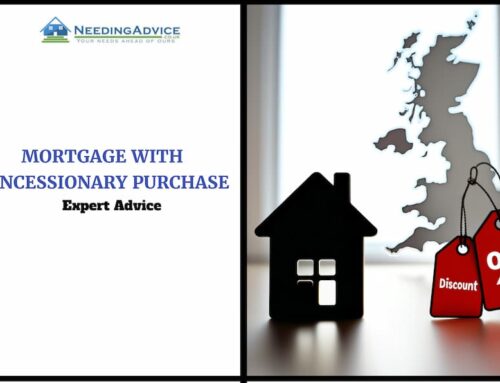Understanding Home Loans and Their Importance
A home loan, or mortgage, is a loan secured against a property you intend to purchase. In the UK, common types include fixed-rate mortgages, where the interest rate remains constant for a set period, and variable-rate mortgages, where the rate can fluctuate. Selecting the appropriate lender and mortgage type is crucial, as it influences your financial commitments for years to come.
Key Features of Top Home Loan Lenders in the UK
When evaluating lenders, consider the following attributes:
•Competitive Interest Rates: Even a slight difference can significantly impact your repayments.
•Flexible Repayment Options: Features like overpayment facilities can offer financial flexibility.
•Customer Satisfaction: High ratings often reflect reliable service.
•Innovative Loan Products: Some lenders provide unique offerings tailored to specific needs.
The article is updated as of 8th Jan 2025
Top Home Loan Lenders in the UK
Here are some of the leading mortgage providers:
1.HSBC: Renowned for a diverse range of mortgage products and competitive rates, HSBC caters to first-time buyers, movers, and those looking to remortgageRefinancing an existing mortgage with a new mortgage. or invest in buy-to-let properties.
2.Santander: Notable for offering interest-only mortgages, Santander provides competitive rates, especially for borrowers with lower loan-to-value ratios.
3.Nationwide: As a leading choice for first-time buyers, Nationwide offers up to 95% of the property’s value and provides special schemes like the Helping HandA type of mortgage that provides assistance to borrowers who... mortgage, allowing eligible buyers to borrow up to 20% more.
4.NatWest: Offers a variety of fixed-rate mortgages with competitive rates, including green mortgages for energy-efficient homes.
5.Halifax: Known for its range of mortgage products, Halifax has recently reduced rates, making it a competitive option for many borrowers.
How to Compare Mortgage Providers Effectively
To make an informed choice:
•Beyond Interest Rates: Examine fees, flexibility, and additional features.
•Utilize Mortgage Calculators: These tools provide personalized repayment estimates.
•Seek Pre-Approval: Engaging with multiple lenders can clarify your borrowing capacity.
Expert Tips to Secure the Best Deal
•Maintain a Healthy Credit Score: A higher score can unlock better rates.
•Negotiate Terms: Don’t hesitate to discuss terms with lenders.
•Consult a Mortgage Broker: Professionals can offer tailored advice and access to exclusive deals.
Conclusion
Selecting the right home loan lender is a critical component of your home-buying journey. By thoroughly researching and comparing options, you can secure a mortgage that aligns with your financial goals and facilitates a smoother path to homeownership.
FAQs About the UK Mortgage Market
1. What is the mortgage market in the UK?
The mortgage market in the UK is a financial ecosystem that includes banks, building societies, and specialist lenders offering a wide range of products such as fixed-rate, tracker, and buy-to-let mortgages. It helps individuals secure funds to purchase homes or investment properties, depending on their financial situation and personal circumstances.
2. Who are the largest mortgage lenders in the UK?
The largest mortgage lenders in the UK include:
•Lloyds Bank: A major player in residential mortgages.
•Nationwide Building Society: Known for its customer-friendly terms and competitive deals.
•HSBC Bank: Offers a wide range of mortgage options, including green mortgage deals.
•Barclays: Popular for its fixed-rate and tracker rateA type of mortgage with an interest rate that is set a certa... mortgage deals.
3. What is the difference between fixed-rate and tracker mortgages?
•Fixed-rate mortgages: Your mortgage interest rate remains constant for a set period of time, offering predictability in monthly payments.
•Tracker mortgages: These follow the Bank of England’s base rateThe interest rate set by the Bank of England, affects the in..., so your mortgage rate may fluctuate, affecting your monthly repayment.
4. Can building societies be a better choice than banks for mortgages?
Yes, building societies like Coventry Building Society, Yorkshire Building Society, and Skipton Building Society often provide competitive mortgage deals and personalised customer support. They may also have more flexible lending criteria compared to larger banks.
5. What factors influence mortgage rates in the UK?
Mortgage rates depend on:
•Loan term: Shorter terms may have lower rates but higher monthly payments.
•Credit history: A good credit score ensures access to better rates.
•Type of mortgage: Fixed-rate, tracker, or adjustable-rate mortgages vary in rates.
•Deposit size: A larger deposit typically secures a lower rate.
•BoE base rate: The Bank of England’s decisions directly affect mortgage rates.
6. What are buy-to-let mortgages, and who offers them?
Buy-to-let mortgages are designed for those purchasing property to rent out. Key lenders in this space include Kent Reliance, Virgin Money, and Pepper Money. Rental income and personal income play a crucial role in determining eligibility for buy-to-let mortgage deals.
7. How can I find the best mortgage deal for my needs?
•Use a mortgage comparison tool to evaluate current mortgage rates.
•Consult an independent mortgage broker for expert advice and access to deals from both banks and specialist mortgage lenders.
•Consider your financial circumstances, loan type, and desired mortgage term before deciding.
8. What is the role of a mortgage advisor or broker?
A mortgage adviser helps navigate the complex mortgage market by providing tailored advice based on your personal circumstances. Reputable brokers like Damian Youell, Matthew Shufflebotham and Sumaiya Patel can also assist with your mortgage application to improve success rates.
9. Are there government schemes available to help first-time buyers?
Yes, government schemes such as Help to Buy and Shared OwnershipA scheme where a borrower purchases a share of a property an... aim to assist first-time buyers in climbing the property ladder. These programs often reduce the deposit requirements, making homeownership more accessible.
10. Can I get a mortgage with bad credit or adverse credit?
Yes, specialist lenders and some building societies cater to individuals with adverse credit histories. They assess individual circumstances, rental income, and repayment ability rather than relying solely on traditional criteria.
11. What is a green mortgage deal?
Green mortgage deals, offered by lenders like Nationwide Building Society and Virgin Money, reward borrowers with lower rates or incentives for purchasing energy-efficient homes or improving their property’s energy performance.
12. What are mortgage fees, and how can they affect my deal?
Common mortgage fees include:
•Arrangement fees: Charged for setting up the loan.
•Closing costs: Fees at the end of the mortgage term or deal.
•Early repayment charges: For overpaying or ending the mortgage early.
Comparing deals with a mortgage repayment calculator can help account for these costs.
13. Can I switch my mortgage deal during the term?
Yes, you can remortgage to access better rates or more flexible terms. Many lenders, including HSBC Bank, Barclays, and Atom Bank, offer competitive remortgage deals to suit different financial situations.
14. How does the type of property affect my mortgage options?
The type of property—such as flats, new builds, or older homes—can influence lending criteria. For instance, buy-to-let mortgage purchases require sufficient rent







Leave A Comment